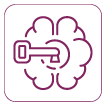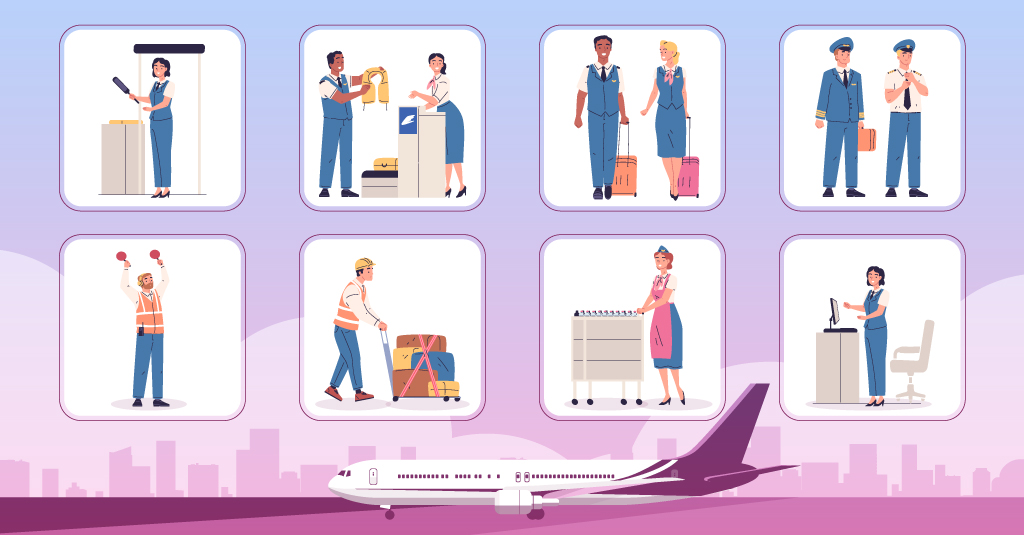
The Challenges that the Airlines Sector Faces
The aviation industry operates within an incredibly challenging environment:
- Global workforce: Most airlines operate in different time zones and places. This prevents face-to-face training for all staff.
- The fast pace of technological changes. New models of aircraft are coming up, advanced avionics and safety demands are arising from every corner.
- Regulatory compliance: Meeting such high safety and operational standards demands recurrent training updates.
- Cost-effective training: Imparting quality training to a large number of heterogeneous workforces is expensive.

How eLearning can help
eLearning addresses these challenges with several key advantages:
- Flexibility and Accessibility: Anytime, anywhere, any device; it is convenient for work schedules and locations.
- Scalability: The eLearning programs are pretty easy to scale up with increasing workforce demands or changes in training requirements in any way.
- Consistency: The same quality of training throughout the company regardless of an employee's location.
- Cost-effective: There is no need for travel by employees and instructors and no use-of-facility costs.
- Engagement: More engaging learning with the incorporation of simulations, gamification, and virtual reality in learning engagements.
- Data-driven insights: The tracking and analysis of the performance and progress of learners offer a wide understanding of knowledge gaps and course optimization.

Key eLearning Aviation Areas
eLearning can be effective in the following areas, and more.
- Cabin Crew Training: To enhance the response and preparedness of the crew through interactive simulation and scenario-based training.
- Maintenance and Engineering: Equipped the staff with the latest knowledge of safety procedures and equipment maintenance through the technical eLearning programs, with the end More generally, the better your customer feedback is, the better your online learning will become.
- Ground Operations: The training in baggage handling, passenger check-in, and airport operations is streamlined and harmonized through online platforms.
- Safety and Compliance: Updates regarding changes in regulations and additions to emergency response plans are made to keep employees up-to-date and informed.

The aviation industry being such a high-stress sector and with the workforce operating in erratic and hectic schedules, mental health becomes a big concern. Poor mental health has serious consequences, not only for the employees but also for safety and operational efficiency. And that’s what led one of the global airline clients to raise awareness about mental health internally.





It has established a 24-hour mental health helpline to which any employee in need could reach out. However, uptake of the helpline was low, and those few calls they did receive were mostly from people whose symptoms were already critical, way past the point when early intervention would have made all the difference. This was very worrisome because this demonstrated a lack of awareness and realization of the issues related to mental health gaps, which have the potential to have grave consequences in such a high-stakes industry.
When Upside Learning came on board, underutilization of the helpline was one of the very first metrics we isolated to target. We began an effort to raise levels of engagement with the helpline so that employees could become better at recognizing symptoms related to poor mental health, spotting early warning signs, and reaching out for support before a point of crisis was reached.

Approach: An Engaging Story-Based Learning Program
We planned a complete mental health sensitivity training program that would touch the employees’ chords. We knew mere information would not help, so we conceptualized story-based learning that unfolded different perspectives-not just the people experiencing mental health issues but also of the people around them: family, friends, and colleagues.
This was designed to dispel myths, stigmatize thoughts about mental health, and make sure people reinforce the fact that seeking help is a sign of strength, not weakness. We also included reflection exercises to help employees recognize their own state of mental being and point out instances when they or someone they know might need help. The program would also provide clear information on access to the resources available, including the helpline.

Impact: Tripled Early Intervention
The results were astounding. In just four months since the launch of the program, there was a threefold increase in employees accessing the helpline appropriately before their symptoms became severe. Early intervention not only helped employees get the support they needed sooner but also contributed toward a healthy and resilient workforce.
This program has given the airline a further differentiator in terms of employer brand, the ability to show that it genuinely cares about mental well-being. National publications featured the company as one of the leaders in mental health support, further bolstering its employer brand. Further accolades came for the program when it picked up a raft of awards, including the prestigious Brandon Hall Group Gold award, recognizing the value and effectiveness of the learning solution. It therefore sets a new benchmark in aviation mental health awareness, focusing on real-world impact and targeting a critical unmet need.
To explore how our solutions can benefit your organization or to learn more about our aviation success stories, please contact us at elearning@upsidelearning.com.
















